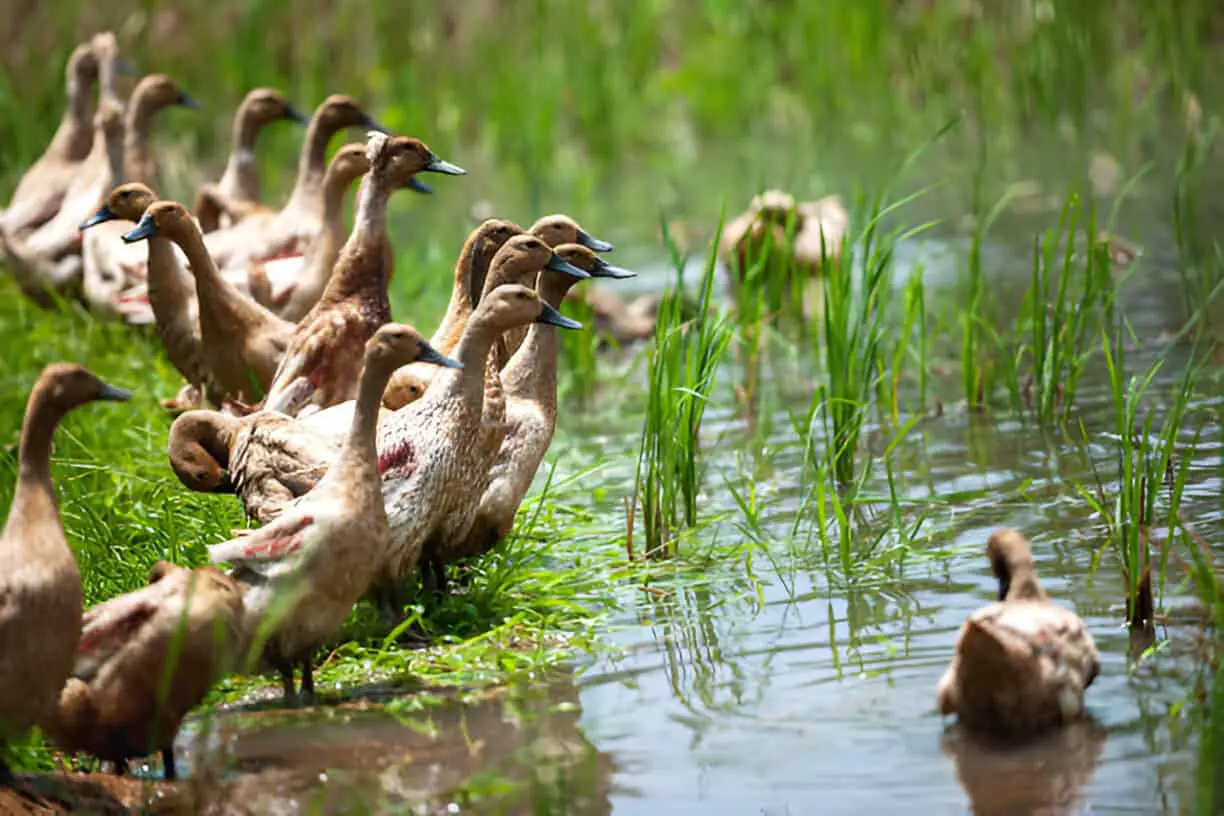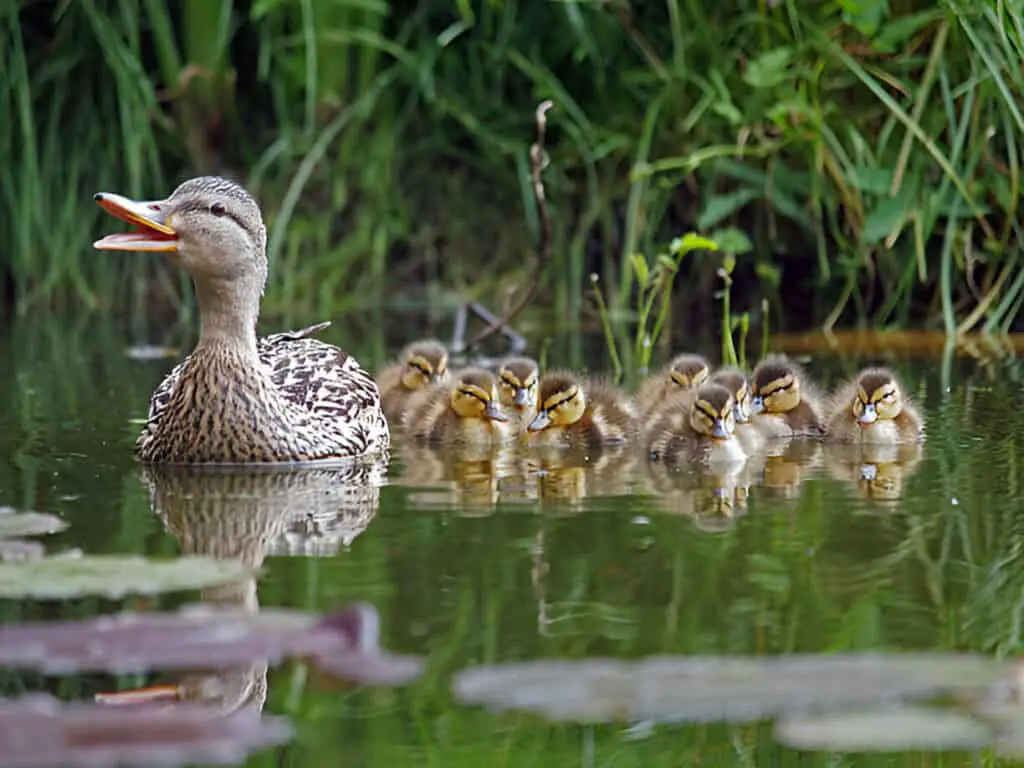When Should You Let Your Ducks Roam Free? Key Factors to Consider

Having ducks in your backyard can feel like having your own little slice of nature. These delightful creatures are not only entertaining to watch but also bring a sense of tranquility to the environment. But one of the most common questions I get asked by fellow duck owners is, “When should I let my ducks roam free?”
The idea of letting your ducks free-range is appealing—they get to stretch their legs, explore, and forage naturally. But like everything in life, it’s important to approach this decision with thoughtfulness. Let’s dive into the key factors you need to consider before opening that gate and letting your ducks roam free.
1. Age Matters: When Are Your Ducks Ready?
First things first: the age of your ducks plays a significant role in whether they should be let to roam freely. Ducks are a bit like teenagers—they need some guidance and supervision before they can be trusted to make their own decisions. If you’ve just brought home baby ducks (ducklings), it’s best to keep them in a secure area where you can monitor them. Ducklings are still learning the ropes, and their ability to stay safe outside depends heavily on their age, size, and maturity.
Typically, I recommend waiting until your ducks are about 8–12 weeks old before letting them roam freely. By this age, they’ve developed the physical ability to navigate the world around them and can handle the rough and tumble of outdoor life. They’re also old enough to recognize the importance of heading back to the coop at night, which is crucial for their safety.
2. Safety First: Protecting Your Ducks from Predators
Let’s face it: the world outside is full of potential dangers for your ducks. From foxes to hawks, raccoons to neighborhood dogs, predators are a constant threat to free-ranging ducks. Before you even think about letting them out, you need to be sure that your yard or property is safe. Consider your security measures and how protected your ducks from predators will be while they roam.
- Fencing: You’ll want to invest in a sturdy, predator-proof fence. Ensure it’s tall enough to prevent ducks from flying over and buried deep enough to deter animals from digging underneath.
- Coop at Night: Even though ducks love to roam freely during the day, ducks still need a secure place to sleep at night. Make sure your coop is closed off properly to keep them safe while they rest.
- Supervision: If you’re still unsure about full free-ranging, you can supervise them outside for short periods. This will give you peace of mind while they enjoy the fresh air and sunshine.
3. The Weather Factor: Is It Safe to Let Them Roam?

You might be itching to let your ducks out on a sunny afternoon, but don’t jump the gun. The weather plays a huge role in the decision to let your ducks roam free. Ducks, while hardy, are sensitive to extreme weather conditions. Rain, snow, and extreme heat can be problematic, especially if they aren’t used to those conditions.
- Hot Weather: Ducks can overheat quickly in hot weather, so if the temperature is soaring, it’s best to keep them in the shade or inside their coop. Ducks will love water to cool off, but direct sun can cause heat stress.
- Rain and Cold: While ducks are naturally waterproof, prolonged exposure to rain and cold can lead to problems like frostbite or illness. Make sure your ducks have shelter if the weather turns sour.
- Seasonal Considerations: If you live in a place with harsh winters, you’ll need to limit free-ranging during the cold months. Ducks should be kept warm and dry inside during the winter, as they can get sick in freezing conditions.
4. Are You Prepared for the Cleanup?
If you’re thinking about letting your ducks free-range, you’ll need to consider the aftermath. Ducks are charming little creatures, but they can also be messy. Their constant foraging and moving about will leave behind droppings, mud, and trampled grass. You’ll need to have a plan for keeping your yard clean, especially if you’re letting them roam regularly.
- Lawn Care: Ducks love to dig in the dirt, so you may notice some spots where the grass is patchy or destroyed. Consider rotating their free-range areas or having specific spots for them to explore.
- Cleaning Up After Ducks: Duck droppings are rich in nutrients, which can be great for the soil, but not so pleasant if you’re stepping on them. Regularly cleaning up will help keep your yard livable and your ducks happy.
- Protecting Plants: Ducks will eat whatever they can get their beaks on, so be prepared for them to nibble on your garden. If you have sensitive plants, you might want to fence off certain areas.
5. Their Natural Instincts: Do Ducks Have a Sense of Direction?

One of the main concerns I hear about free-ranging is whether ducks will know how to get back to the coop at night. The short answer is yes—they have an excellent sense of direction. Ducks have an incredible ability to remember where their food and shelter are located. Once your ducks establish a routine and understand the boundaries of their free-ranging space, they will typically head back to the coop as the sun sets.
However, there can be a bit of a learning curve. Younger ducks may take time to figure this out, so for the first few nights, you’ll want to guide them back into the coop. But once they get the hang of it, you can rest easy knowing they’re safe.
6. Timing is Everything: The Best Time to Let Your Ducks Free-Range
Now that you’ve considered the factors above, it’s time to think about the timing of when to let your ducks roam free. There’s no perfect answer, but there are some general guidelines that can help you make the best decision for your ducks.
- Daytime Freedom: It’s best to let ducks roam during the daytime when you’re around to supervise, at least until they get the hang of it. Early morning or late afternoon is ideal, when the sun isn’t too hot.
- Gradual Introduction: Start with short periods of free-range time and increase it as your ducks get more comfortable. This allows them to adapt and helps you monitor how they’re handling the experience.
- Consistency: Ducks are creatures of habit. The more consistent you are with their free-range times, the easier it will be for them to adjust to the routine. You’ll notice they’ll return to the coop at roughly the same time each day.
Conclusion: Enjoying the Freedom of Free-Ranging Ducks
In the end, letting your ducks roam free is a rewarding experience for both you and your ducks. Not only will they enjoy the freedom to forage and explore, but you’ll also enjoy watching their natural behaviors unfold. Just remember that patience, preparation, and protection are key. Consider your ducks’ age, safety, weather conditions, and your ability to manage the aftermath of their free-range adventures. When all these factors align, your ducks will thrive in their new freedom, and you’ll find that both you and your feathered friends are happier for it.
Quick Checklist Before Free-Ranging Ducks:
| Factor | What to Consider |
| Age | 8–12 weeks old for safety and maturity |
| Safety | Secure fencing and predator-proof coop |
| Weather | Avoid extreme heat or cold weather |
| Cleanup | Be prepared for droppings and mud |
| Timing | Start with short, supervised periods |
With all these tips in mind, you’ll be ready to give your ducks the best free-range experience possible. Happy duck tending!






